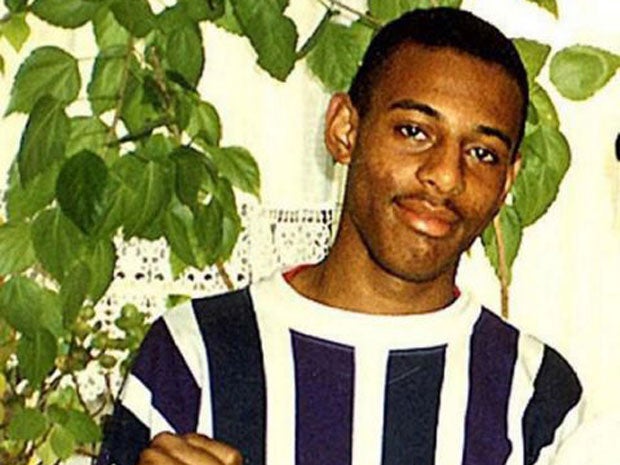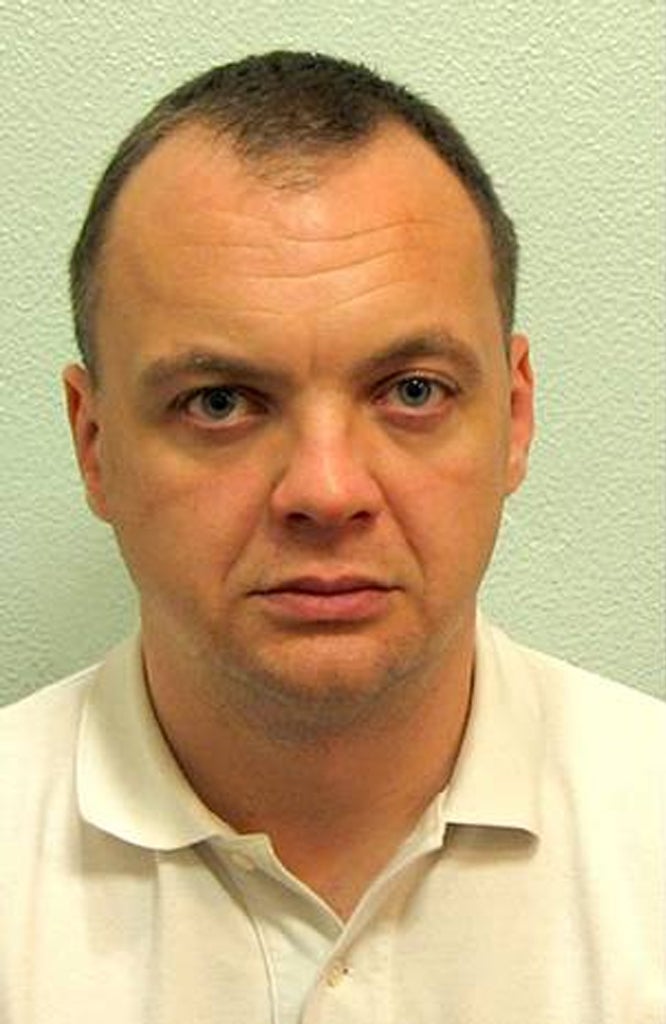Stephen Lawrence's father says he forgives son's killers 25 years after racist murder
Investigation into alleged police corruption continues as at least three killers remain at large
Stephen Lawrence’s father has said he has forgiven his son’s killers almost 25 years after the racist murder that shook Britain.
Neville Lawrence, 76, called the decision the “hardest I will ever make in my lifetime” as the anniversary of his son’s death approaches.
“The fact that I had to lose my first child has been devastating,” he said. “I can't begin to explain the pain and the anguish me and my family have suffered over the past 25 years.”
Only two people out of the six-strong gang that attacked 18-year-old Stephen as he waited for a bus in London on 22 April 1993 have been convicted and the police investigation cannot progress without new evidence.
David Norris and Gary Dobson are both serving life sentences, while three other men who have been accused of involvement but never convicted are Jamie Acourt, 41, from Bexley, his brother Neil Acourt, 42, who uses his mother's maiden name Stuart, and Luke Knight, 41, both from Eltham.
Mr Lawrence plans to spend the upcoming anniversary of his son's death in church, amid heightened scrutiny of the botched probe into the murder.
“I will never be the person I was before Stephen's death,” the father-of-three told the Press Association.
“You can never brush this aside, this is going to live with you for the rest of your life.

“This is a life sentence that you can't finish. The only time my life sentence will be finished is when I'm in the ground.”
Mr Lawrence and his former wife, Baroness Doreen Lawrence, met Nelson Mandela two weeks after the murder, with the anti-apartheid revolutionary telling the couple that “never in his wildest dreams did he think that something like that would happen in a place like Britain”.
Mr Lawrence said: “Meeting him gave me the courage to do some of the things I have done over the years.
“Other families came to my rescue as well…I decided, after a certain amount of time, on my journey, that if anybody who had the same kind of experience wanted me to come and talk to them then I would do that.
“I also decided that I would go into schools and universities and talk to the younger generation.”
Mr Lawrence’s campaigning against knife crime has taken on fresh urgency amid a spate of fatal stabbings in London, which has seen more than 50 murders this year, including two within 40 minutes on Sunday..
“Right now with the violence, and the knife crime violence, it is even more urgent now that I talk to these youngsters and explain to them the pain and the suffering they inflict on families,” he said.
“It is a life sentence and something that will never be served.”
Amid concerns about cuts to youth services, he warned that young people left with nothing to do will get involved in “devastating” criminality linked to gangs in their communities.

Stephen had spent a normal evening playing video games at his uncle’s house with friend Duwayne Brooks OBE on the night he was killed.
The pair left at around 10pm to catch a bus in Well Hall Road, Eltham, where Mr Brooks saw a group of six young white men moving towards them as Stephen went to check for the bus.
He heard one of the youths saying “what, what n***er?” before the group surrounded Stephen and stabbed him twice before fleeing.
Stephen collapsed and bled to death after attempting to run away with a collapsed lung, dying just nine months after an Asian boy, Rohit Duggal, was stabbed to death outside a nearby kebab shop in Eltham.
The original investigation into Stephen’s death was dogged by racism, incompetence and suspected corruption, seeing the Lawrence family themselves allegedly subjected to a smear campaign and surveillance.
Their campaign for justice has resulted in a damning review of the original investigation that found serious flaws with “troublesome and sinister” causes.
The 1998 Macpherson Report concluded that the Metropolitan Police was institutionally racist and recommended that a law meaning someone cannot be tried for the same crime twice should be lifted in murder cases, allowing Dobson to be convicted.
A second inquiry in 2014 found that a flawed internal review “piled more grief” upon Stephen’s family and misled the public by denying wrongdoing.
Scotland Yard detectives failed to arrest suspects when they were named or search their addresses in the days following the murder, causing vital evidence and interviews to be lost, while wrongly characterising the Lawrence family as “difficult” and denying them information.
A separate investigation into alleged police corruption is underway, with 50 National Crime Agency investigators working under the direction of the Independent Office for Police Conduct (IOPC).
Millions of documents have been collected from the Metropolitan Police and Stephen Lawrence Inquiry, alongside information from officers, lawyers, judges and members of the public.
Investigators have been interviewing people involved in the original murder inquiry, witnesses and journalists, and said the inquiry was reaching a “new phase” earlier this year.
A separate inquiry into undercover policing is also examining claims that police moles infiltrated campaign groups supporting the Lawrence family.
Scotland Yard said it was keeping his parents updated on the investigation but that without new information it is unlikely to progress further.
Chris Le Pere, the senior investigator, said: “We understand that 25 years is a poignant anniversary of the tragedy of the murder of Stephen, and our thoughts remain very much with those who loved him, and feel his loss.
“There is still the opportunity for someone who knows what happened that night, to have a conscience and come forward. I would say to you, it is never too late to do the right thing.”
Mr Lawrence said he believed that in death his son, who aspired to become an architect, had become a “legend”.
“When these boys killed my son Stephen, they created a legend,” he said.
“There is debate about racism, there are organisations set up to help to make people understand about racism, the police have been put under the spotlight because of Stephen's death.”

